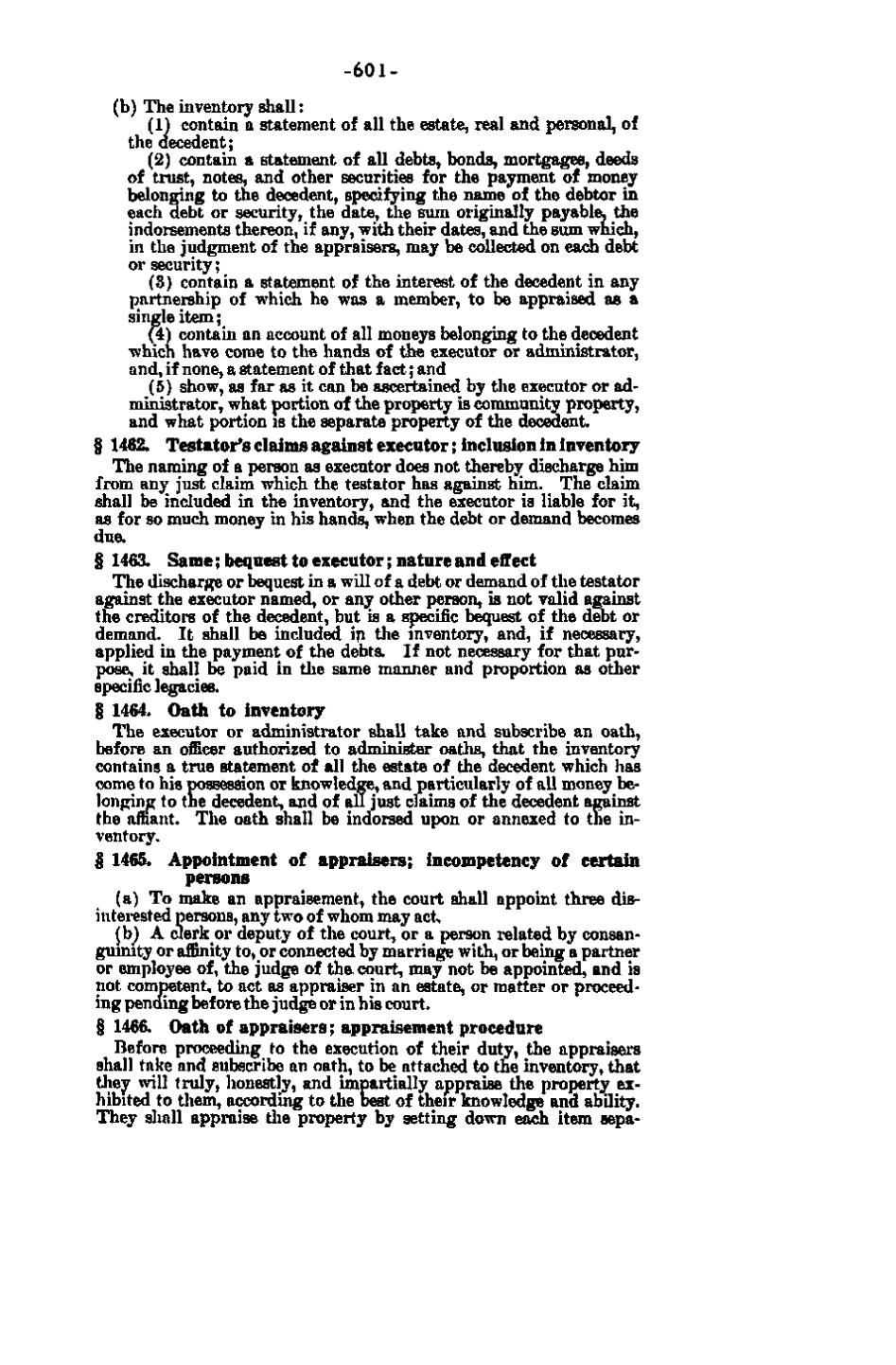–601–
-601(b) The inventory shall: (1) contain a statement of all the estate, real and personal, of the decedent; (2) contain a statement of all debts, bonds, mortgages, deeds of trust, notes, and other securities for the payment of money belonging to the decedent, specifying the name of the debtor in each debt or security, the date, the sum originally payable, the indorsements thereon, if any, with their dates, and the sum which, in the judgment of the appraisers, may be collected on each debt or security; (3) contain a statement of the interest of the decedent in any partnership of which he was a member, to be appraised as a single item; (4) contain an account of all moneys belonging to the decedent which have come to the hands of the executor or administrator, and, if none, a statement of that fact; and (5) show, as far as it can be ascertained by the executor or administrator, what portion of the property is community property, and what portion is the separate property of the decedent. § 1462. Testator's claims against executor; inclusion in inventory The naming of a person as executor does not thereby discharge him from any just claim which the testator has against him. The claim shall be included in the inventory, and the executor is liable for it, as for so much money in his hands, when the debt or demand becomes due. § 1463. Same; bequest to executor; nature and effect The discharge or bequest in a will of a debt or demand of the testator against the executor named, or any other person, is not valid against the creditors of the decedent, but is a specific bequest of the debt or demand. It shall be included in the inventory, and, if necessary, applied in the payment of the debts. If not necessary for that purpose, it shall be paid in the same manner and proportion as other specific legacies. § 1464. Oath to inventory The executor or administrator shall take and subscribe an oath, before an officer authorized to administer oaths, that the inventory contains a true statement of all the estate of the decedent which has come to his possession or knowledge, and particularly of all money belonging to the decedent, and of all just claims of the decedent against the affiant. The oath shall be indorsed upon or annexed to the inventory. § 1465. Appointment of appraisers; incompetency of certain persons (a) To make an appraisement, the court shall appoint three disinterested persons, any two of whom may act. (b) A clerk or deputy of the court, or a person related by consanguinity or affinity to, or connected by marriage with, or being a partner or employee of, the judge of the court, may not be appointed, and is not competent, to act as appraiser in an estate, or matter or proceeding pending before the judge or in his court. § 1466. Oath of appraisers; appraisement procedure Before proceeding to the execution of their duty, the appraisers shall take and subscribe an oath, to be attached to the inventory, that they will truly, honestly, and impartially appraise the property exhibited to them, according to the best of their knowledge and ability. They shall appraise the property by setting down each item sepa-
�
